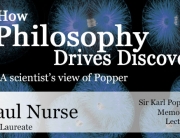Johanna Thoma (LSE): “Merely Means Paternalist? Prospect Theory and `Debiased’ Welfare Analysis”
Economics has traditionally been opposed to paternalism. However, the findings of behavioural economics have made popular one kind of paternalism that appears to be more innocuous: The kind of paternalism that respects an agent’s ends, or her non-instrumental, intrinsic valuations, and merely helps her purse them effectively. This paper discusses one prominent and initially promising way to inform means paternalist policies addressed at agents who violate expected utility theory (EUT), namely what I call ‘CPT debiasing’. It assumes the descriptive adequacy of cumulative prospect theory (CPT), which allows us to identify a utility function for the target agent. This is often thought of as providing us with a measure of her ends. We then plug this utility function into an expected utility calculation in order to determine a rational way for her to pursue those ends, which the means paternalist then imposes on her. This paper argues that CPT debiasing should be opposed on general anti-paternalist grounds, even if we grant the normative authority of EUT, the descriptive adequacy of CPT, and the idea that means paternalism is at least sometimes immune to general anti-paternalist concerns. First, this is because there are reasons to doubt that the utility function measured within a CPT framework provides us with a measure that isolates the agent’s non-instrumental values, or her ends. Second, even if it does, the resulting means paternalism is a problematic type of means paternalism that should be ruled out by the same considerations that motivate economists’ opposition to ordinary paternalism.



























Connect with us
Facebook
Twitter
Youtube
Flickr